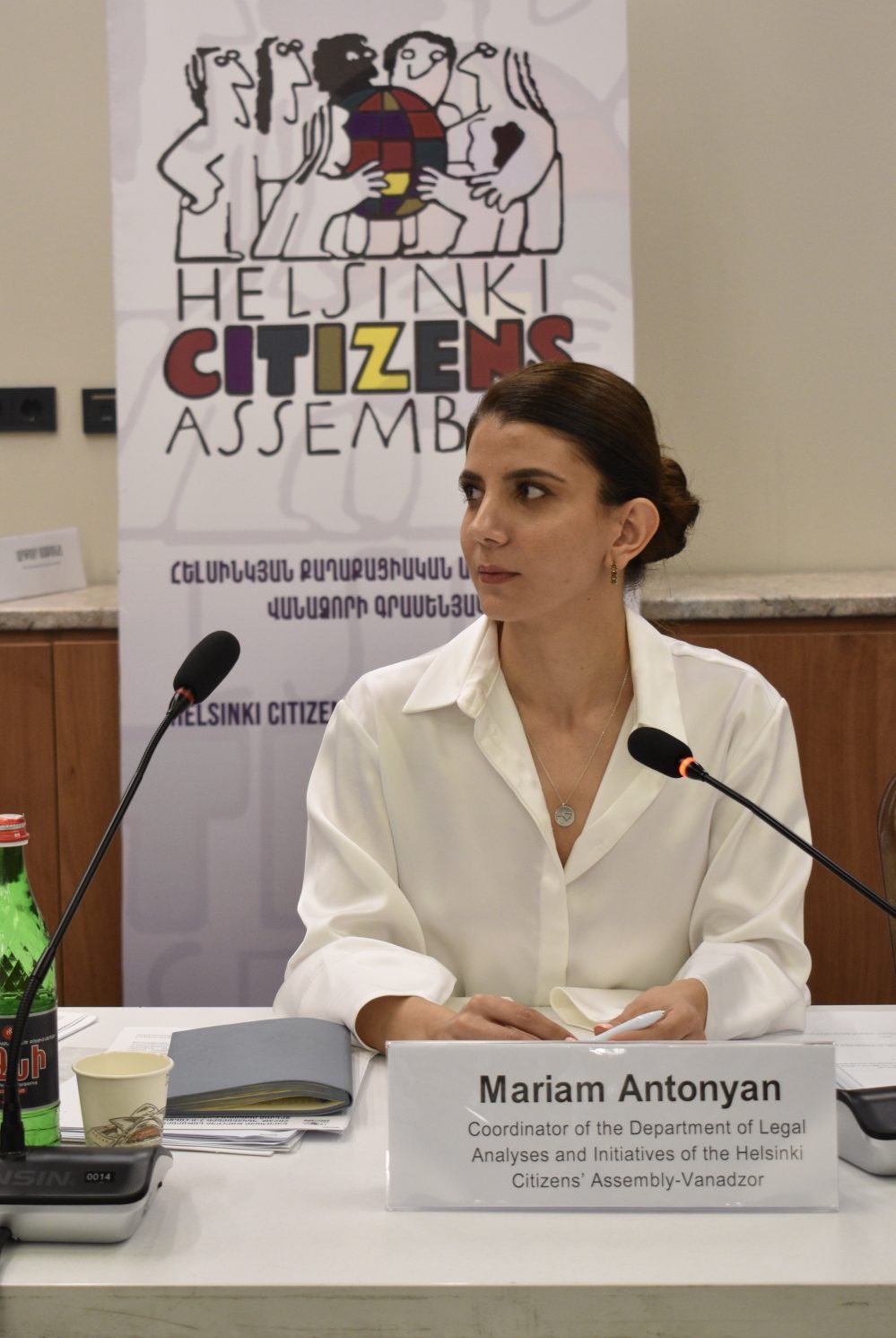During the conferance on “The State of Protection of the Absolute Right to Be Free from Torture and Degrading Treatment in Armenia. Is Impunity Being Overcome?”, Mariam Antonyan, the coordinator of the department of Legal Analyses and Initiatives of the Helsinki Citizens’ Assembly-Vanadzor, presented the institutional and legislative issues of torture prevention.
The Republic of Armenia has a legal obligation to prevent torture and other cruel, inhuman or degrading treatment or punishment, in accordance with its international obligations.
Article 2, paragraph 1, of the 1984 UN Convention against Torture and Other Cruel, Inhuman or Degrading Treatment or Punishment obliges each State Party to take legislative, administrative, judicial or other effective measures to prevent acts of torture in any territory under its jurisdiction.
As the Committee against Torture (the Committee) explained in its general comment No. 2, “Article 2, paragraph 1, of the Convention obliges each State party to take actions that will reinforce the prohibition against torture”․
Although the prohibition of torture underlies the obligation to prevent torture and ill-treatment, it remains a specific, independent obligation.
Effective monitoring institutions, including complaint mechanisms, are an essential part of a torture prevention system. There should be no monopoly in preventive work. Prevention is a multifaceted and interdisciplinary activity.
Articles 3 to 15 of the Convention constitute specific preventive measures that the States Parties deemed essential to prevent torture and ill-treatment, particularly in custody or detention. The Committee emphasizes, however, that the obligation to take effective preventive measures transcends the items enumerated specifically in the Convention. For example, it is important that the general population be educated on the history, scope, and necessity of the non-derogable prohibition of torture and ill-treatment, as well as that law enforcement and other personnel receive education on recognizing and preventing torture and ill-treatment. In order to reinforce preventive actions against torture in the Republic of Armenia, it is necessary to make a number of institutional changes and legislative amendments, in particular:
- Introducing mechanisms for anonymous reporting of torture, inhuman or degrading treatment or punishment in the army, places of deprivation of liberty and psychiatric facilities.
- Introduction of an independent civilian institution of a military ombudsman.
- Equip all interrogation rooms and corridors in police departments with audio and video recording devices.
- Development of a specific methodology to assess the effectiveness of education and training programs related to the 2004 UN Istanbul Protocol.
- Maintaining statistics on complaints of torture and ill-treatment, including information on relevant investigations, trials, and criminal or disciplinary actions imposed.
- Reserving investigative jurisdiction over torture cases to a structurally and functionally independent body. Reserving investigative jurisdiction over torture cases to the Investigative Committee was an artificial and “residual” solution, since the RA Special Investigative Service was created precisely to counteract those and other persons performing state services, and the RA Investigative Committee does not have the institutional and functional level of independence and impartiality required for the investigation of torture cases.
- Determination of liability for other forms of ill-treatment.

